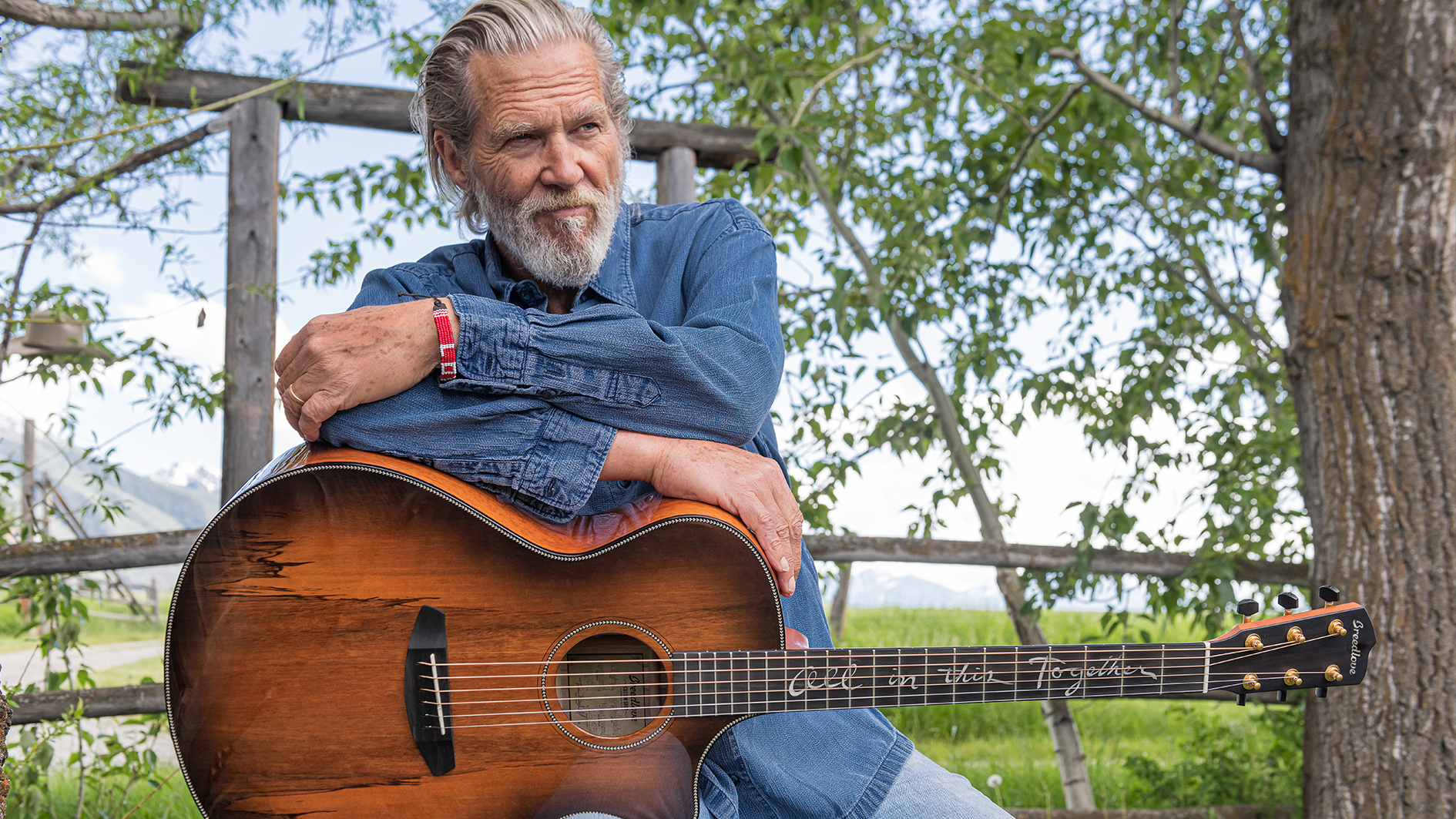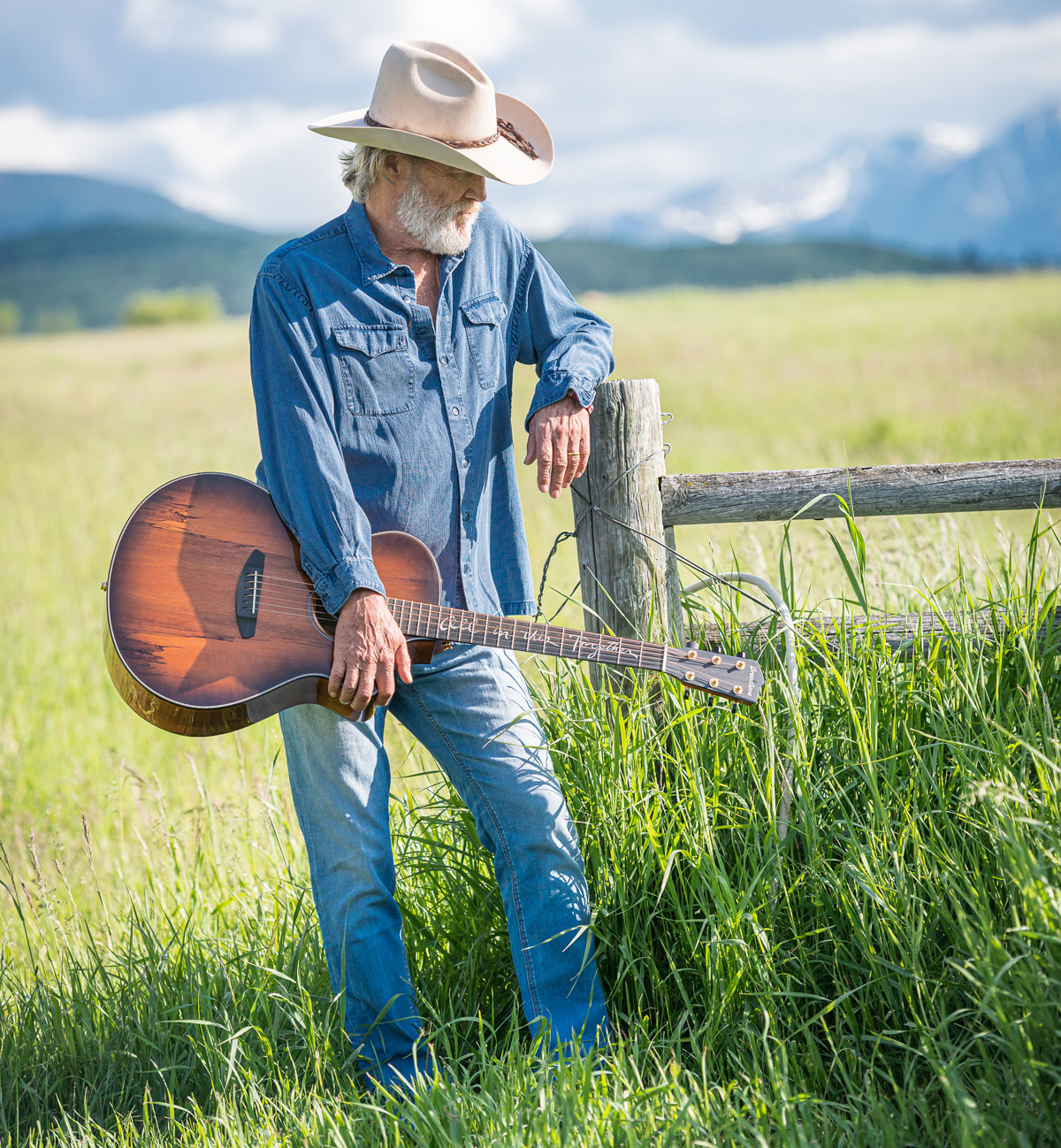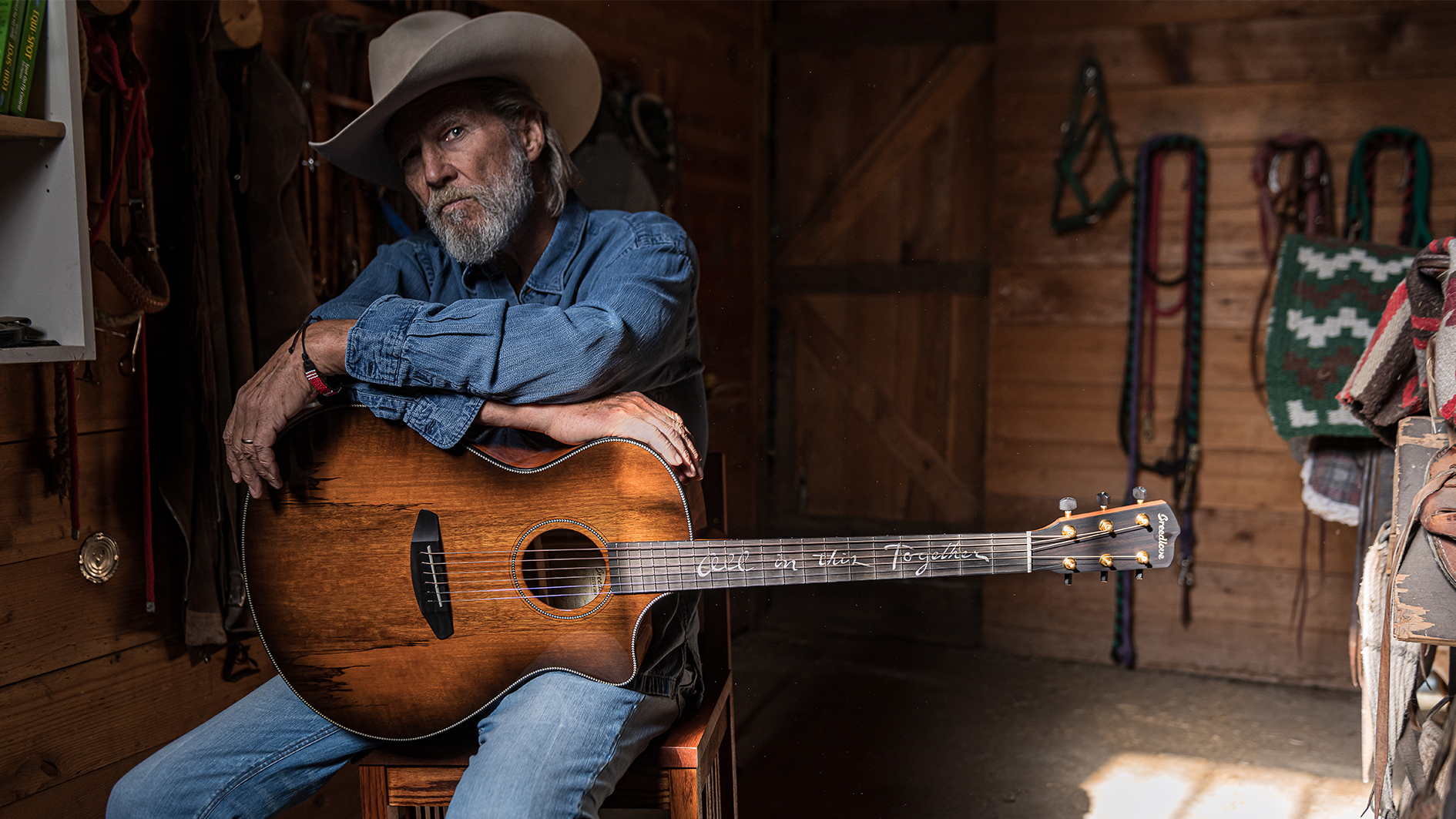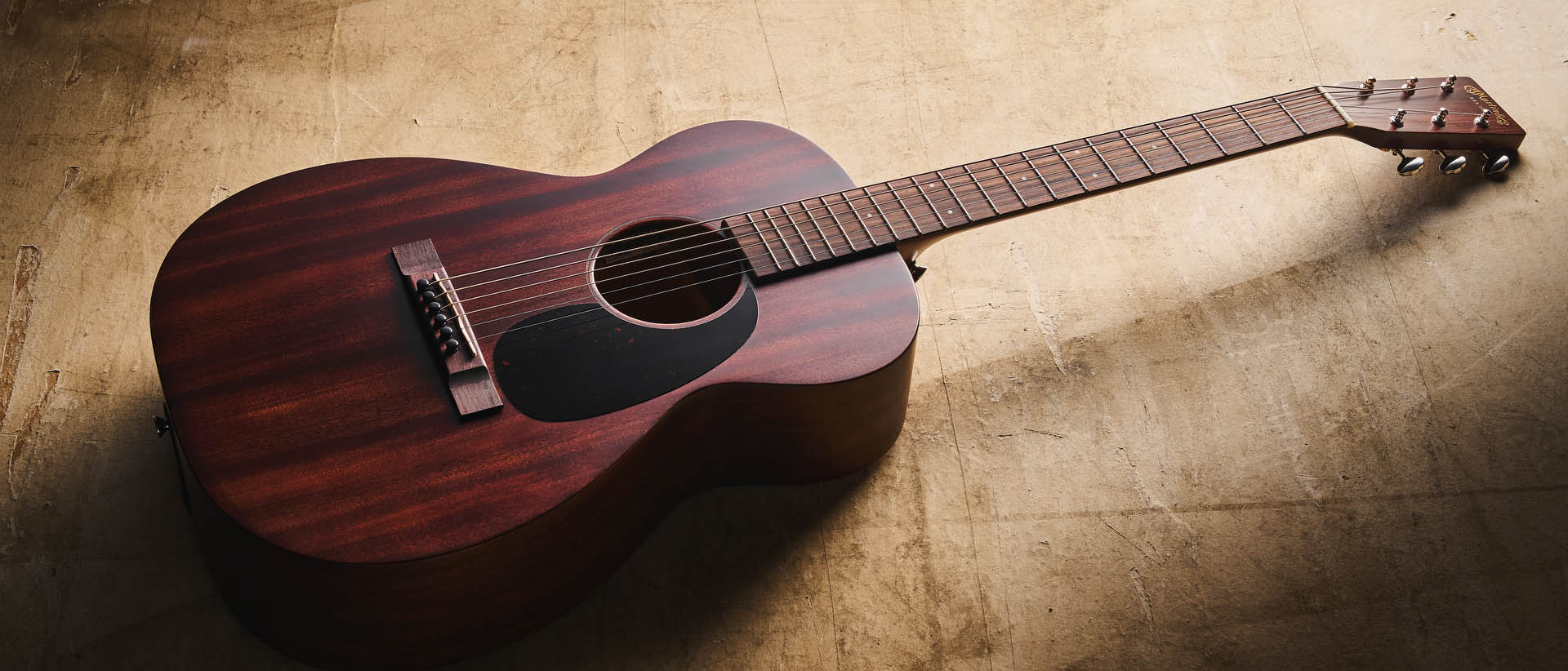Jeff Bridges on how his Breedlove signature acoustic will help save the planet - and why he started his first rock band at 60
The Oscar-winning actor reflects on his guitar heroes, Zen koans, and finding harmony on the film set

Jeff Bridges is laughing because Bridges - the Oscar-winning actor, musician, photographer and Zen raconteur par excellence - is talking about his new signature Breedlove acoustic guitar, and he just caught himself speaking in the urgent cadence of the Home Shopping Network.
“I feel like one of those salesmen on TV,” he hoots. “And here’s an even better deal!” But you’ve got to understand, Jeff Bridges is excited, really excited, because he’s on a Zoom call to talk about two of his big passions in life, playing the guitar and environmentalism.
Part of Breedlove’s Made In Bend series, the Jeff Bridges Signature Oregon Concerto Bourbon CE is an acoustic electric with a soft cutaway that eschews clear-cut woods in favor of sustainable tonewoods - particularly those from the the Beaver State.
It has a solid Oregon AAA myrtlewood top finished in Bourbon Burst gloss, with Bourbon Stain solid myrtlewood back and sides, and Sitka spruce “Forward X” pattern bracing.
Elsewhere, the neck is sustainable native Eastern Hard Rock maple and there is a sustainable West African ebony fretboard, bridge and headstock overlay. Bridge’s motto, “All in this together” is inlayed on the fretboard, with the instrument finished with herringbone purfling and rosette.
As for electronics, there’s an industry standard L.R. Baggs Anthem and preamp system with controls for volume, mix, phase inversion, battery check and mic trim discretely mounted in the soundhole.
By any standard, it is a handsome instrument. The myrtlewood is highly figured, so there is a considerable degree of variation in each of the guitar’s finishes. Breedlove’s body shapes are interesting in that they do not conform to the parlor/orchestra/dreadnought template.
All the latest guitar news, interviews, lessons, reviews, deals and more, direct to your inbox!
Breedlove describes the Concerto as the body shape for “Heavy Play” style, positioning it somewhere between a dread and a jumbo for the strummers among us, with a body depth that tapers out from 4” to 5” at the tail.
The Made In Bend Jeff Bridges Signature model retails for $2,599 and is available exclusively from Lost Chord Guitars in Solvang, California. Each guitar comes with a deluxe gigbag and signed certificate from Jeff Bridges himself and a portion of each sale goes to the Amazon Conservation Team.
So let’s unmute the man whose signature is on the headstock and talk a little bit about how his guitar came about, the importance of ecologically sound tonewoods, and where it all started for him with the guitar.

As 99.99 per cent of our conversations start, let’s begin with the guitar. Where did the idea come from?
“Yeah, well, it can’t be overstated how important our forests are to us, and the wildlife that lives in there. It didn’t make any sense for us to make our instruments out of wood from trees that aren’t sustainable. It didn’t make sense to me, and I got in touch with Breedlove through my good friend Chris Pelonis, who is the musical directer and the lead guitarist of our band, the Abiders.
“He has a guitar shop called Lost Chord Guitars. He said, ‘Look at this beautiful guitar by Breedlove. Wow, man! It played so wonderful and played so great. And it also gives you a good feeling to know that the wood used in this guitar is all sustainable wood.’
"I said, ‘What is that wood? It’s beautiful.’ He said, ‘Yeah, man, it’s myrtlewood. It comes from Oregon. The wood is used from downfall of these trees. Myrtlewood is sustainable wood.’ As soon as I played it I fell in love with it. He said, ‘Hey, do you want to have this be your signature guitar? So I met Tom Bedell, the founder of Breedlove Guitars, and he was very inspiring.”
What did he say?
He wants to encourage other guitar makers to consider where their wood is coming from, and also the consumers
“He is all about making instruments with wood that’s sustainable. It’s not even about, ‘Buy our guitars. We’re the only guitar company that makes them like this.’ He wants to encourage other guitar makers to consider where their wood is coming from, and also the consumers.
"When a guy goes into buy a guitar, make him ask, ‘Hey, where does the wood for this guitar come from.’
“Then Tom explained, ‘That’s just the tip of the iceberg, Jeff. Instruments is one thing but we should have that same consideration about our flooring and our furniture. We’ve got to take care of our trees. So that really brought me on board. So Tom, Chris and I, we got together and we designed this guitar.”
How involved did you get with the technical specs?
“I didn’t do too much acoustically. Chris Pelonis and Tom are really responsible for the acoustics of the thing. Chris is also a world-class acoustician. He designs all studios all over the place, and he has a wonderful guitar shop.”
Are there going to be any other editions of your guitar?
“The myrtlewood model I showed you is the flagship model. That’s the Bend, Oregon, model, with myrtlewood and Sitka spruce bracing, and that goes for $2,600, but there is a signature Organic Amazon with torrefied European spruce top and grenadillo model, and that is going for a thousand bucks, and the signature Congo model with [FSC-certified African] mahogany goes for 700 bucks.
"All of those guitars will be available at the Lost Chord Guitar Shop. You can get the flagship model right now. He’s got guitars at his store right now. But the other less expensive models will be available September 1st.”
it took me being 60 years old before I got my high-school fantasy of getting a rock band together
Do they all have the same body shape?
“Yeah, they are all the same shape. All three will have that ‘All in this together' inscription.”
You grew up with music in your house. How close were you to choosing music before acting got you?
“Yeah, y’know I remember stealing my brother’s Danelectro guitar. He is eight years older than me so Buddy Holly, Chuck Berry, Little Richard, that was what was coming out of his room.
"So when I got turned on to it, I would take that guitar and start fantasizing about being in a rock band! [Laughs] And it took me being 60 years old before I got my high-school fantasy of getting a rock band together.”
All good things come to those who wait…
“I think a lot of that had to do with the success of that movie, Crazy Heart, and working with my dear friend T Bone Burnett. That really got my juices going after that movie. T Bone and I made an album after that movie.
“Also, another thrill about music, for me, is it gives you a chance for me to hang out with one of my oldest friends, John Goodwin. We go back to the fourth grade. He writes so many of the songs that the Abiders do. When we go on tour we do a lot of John Goodwin’s tunes.
“He along with a couple of other folks wrote the song that’s coming out now, My Welcome Mat. He also wrote that song Hold On You, which was from Crazy Heart. So playing music is the chance to hang with my good buddies, T-Bone, John Goodwin and my band. I just love that band. They are all really talented musicians that Chris Pelonis got together in Santa Barbara.”
You mention getting into Buddy Holly and early rock ’n’ roll through Beau – who were your guitar heroes?
“I turned my brother onto the Beatles and Dylan, and the guys from my generation who were growing up. But Dylan, man! God, isn’t it great to be alive with him? Wow! There are so many more. Tom Waits. I love Tom Waits. Greg Brown - are you hip to Greg Brown?
"Bo Ramsey is a beautiful guitar player. I love the way he plays. T Bone Burnett has been such an influence and a dear friend for so many years, going on 40 years now, and he brings so much wonderful music into my life.”
[My daughter and I] will be in the wings there before we go on and be like, ‘What hell are we doing? Why are we doing this!? Jessie, oh my God! I can’t remember anything!’
These cats are all great, and they are all great storytellers.
“Yeah, man. I think so. I think so.”
How do you view the act of performance as an actor and then as a musician. Are there commonalities there?
“Yeah, it’s very similar. They are very similar. Umm, it has a lot to do with… Fear! [Laughs] Fear comes up in both instances just before you go out there.
"I perform with my daughter, Jessie Bridges, who has some wonderful music as well, and we will be in the wings there before we go on and be like, ‘What hell are we doing? Why are we doing this!? Jessie, oh my God! I can’t remember anything!’
“But once you get out there, boom! You’re fine. You’re just serving the tunes and entertaining the people, and it is as simple as anything. [Laughs] I learn that lesson over and over again, and it’s the same thing with the movies.
"Y’know, before a scene, you get nervous, especially if you want it to be good. The more you care about it the more that fear builds up. The assignment is always the same: just let it get out of the way and let it come free, man.”
A little fear can be a good thing.
“I don’t know if it is a good thing, but some people are just wired that way, y’know. Some people aren’t anxious at all, and they do great, and some people are anxious, and they do great, too, and it’s fine.”
Does music help you get into a character?
“Oh yeah. Some directors - Peter Weir comes to mind. I did a movie with him called Fearless, and he would actually score every day’s work to put everybody into the same frame of mind, listening to the same music, we’re all in this together - we are creating something beautiful together. And so he would score every day. He gave us each a cassette with the music.
There’s nothing like making movies; it’s kinda like harmonizing, making it sound beautiful
“But yeah, music helps. Whenever I am working in the movies, I’ll bring my guitar. There are so many actors who can pick and play. There’s nothing like making movies; it’s kinda like harmonizing, making it sound beautiful.
"Music is another way to connect with those actors to make that happen and get to know each other in that sense. You are sensitive to each other.”
How did your Sleeping Tapes album come together? That was an interesting experiment.
“I love that album, man. I just really dig it. Every once and a while I’ll put it on and it’s like, ‘Oh, I forgot how much I enjoyed it.’ A lot of that has to do with Keefus Ciancia. He does all of that music. The thing came about as a commercial for Squarespace.
"They came to me and said, ‘Well hey, we’re doing a Super Bowl commercial. We’d like you to do it. We want you to come up with the most ridiculous product that you can imagine and we will make a website out of it and we will actually make the product.’”
Really? That’s far out. It almost sounds like the premise to a Peter Weir movie.
“They said it could be anything I wanted. They will make the album and the proceeds can go to No Kid Hungry, which is an organization that I am the national spokesperson for. I said, ‘I’m in!’ So here was this assignment to do whatever I wanted to do, so I thought, well, I am going to get my buddy Keefus, who T-Bone Burnett turned me onto.
“He played on this album that we made after Crazy Heart. Keefus and I sat in a studio for about a week and jammed, and we had no idea what we were doing but this is what came outIt surprised us, and we have got a whole slew of material. We could easily put out Sleeping Tapes Part 2. We had such a good time doing it.”
Your band is called the Abiders, which is obviously in reference to The Big Lebowski. Did you feel that playing the Dude was going to have all this almost spiritual importance to you?
“Yeah, well that picture has legs, man! My gosh! Going into it I wasn’t thinking too much about spiritual, philosophical ideas. It was a comedy, basically, y’know!
We wrote this book called The Dude and the Zen Master, and that really underlines a lot of the spiritual and philosophical angles of the film that the Coen brothers had no intention of at all
“But I was sitting between Ram Dass and [American Zen Buddhist roshi] Bernie Glassman at a dinner party and Bernie leans over to me and says, ‘I am a big fan of Lebowski.’ I said, ‘Oh, thanks.’ He said, ‘Y’know, it is filled with Zen koans.’ I said, ‘What are you talking about?’ He said, ‘Well look who directed the movie, the koan brothers.’
“I said, ‘Yeah, that’s pretty funny.’ He said, ‘No, it’s filled with Zen koans.’ I said, ‘What do you mean?’ He said, ‘Well the Dude abides…’ ‘Shut the fuck up, Donny!’ that could be a koan. Our favorite line, ‘That’s just, like, your opinion, man.’ Bernie is a Zen master. He is quite radical in his thinking. The four noble truths? He calls them the four noble opinions.
“He was a wonderful guy and he said, ‘Let’s write a book about these koans in The Big Lebowski.’
"He was all about bringing Buddhism and koans into today, and so we came up to Montana - as a matter of fact where I am right now - and we wrote this book called The Dude and the Zen Master, and that really underlines a lot of the spiritual and philosophical angles of the film that the Coen brothers had no intention of at all. It was something that the viewers and Bernie read into it.”

Going back to guitars, have you collected a lot of gear over the years?
“Yeah, quite a bit. I don’t consider myself a collector but I notice I have bought a lot of guitars. I don’t know exactly how many but, y’know, you accumulate equipment and so forth.”
You’ve got the Gretsch Country Gentleman right?
“That’s my go-to electric. I just love that. I’ve got a Tele as well, and a beautiful Gibson that all the tunes from Crazy Heart were recorded on. Buddy Miller played that guitar and I bought that guitar off of him after that.”
Is that the J-45?
“Yeah, it’s a J-45.”
You take a guitar to work with you but what would you say to someone who is struggling to find the time to play?
“Take the guitar out of its case and put it on a stand. That’ll get you playing it 50 per cent more right there. And so I’ve got guitars in several rooms of the house. My daughter, Jessie, is over here now so we have been playing a lot together - and that is wonderful, playing with your family.”
The Breedlove Jeff Bridges Signature Oregon Concerto Bourbon CE is available now from Lost Chord Guitars.
Jonathan Horsley has been writing about guitars since 2005, playing them since 1990, and regularly contributes to publications including Guitar World, MusicRadar and Total Guitar. He uses Jazz III nylon picks, 10s during the week, 9s at the weekend, and shamefully still struggles with rhythm figure one of Van Halen’s Panama.

